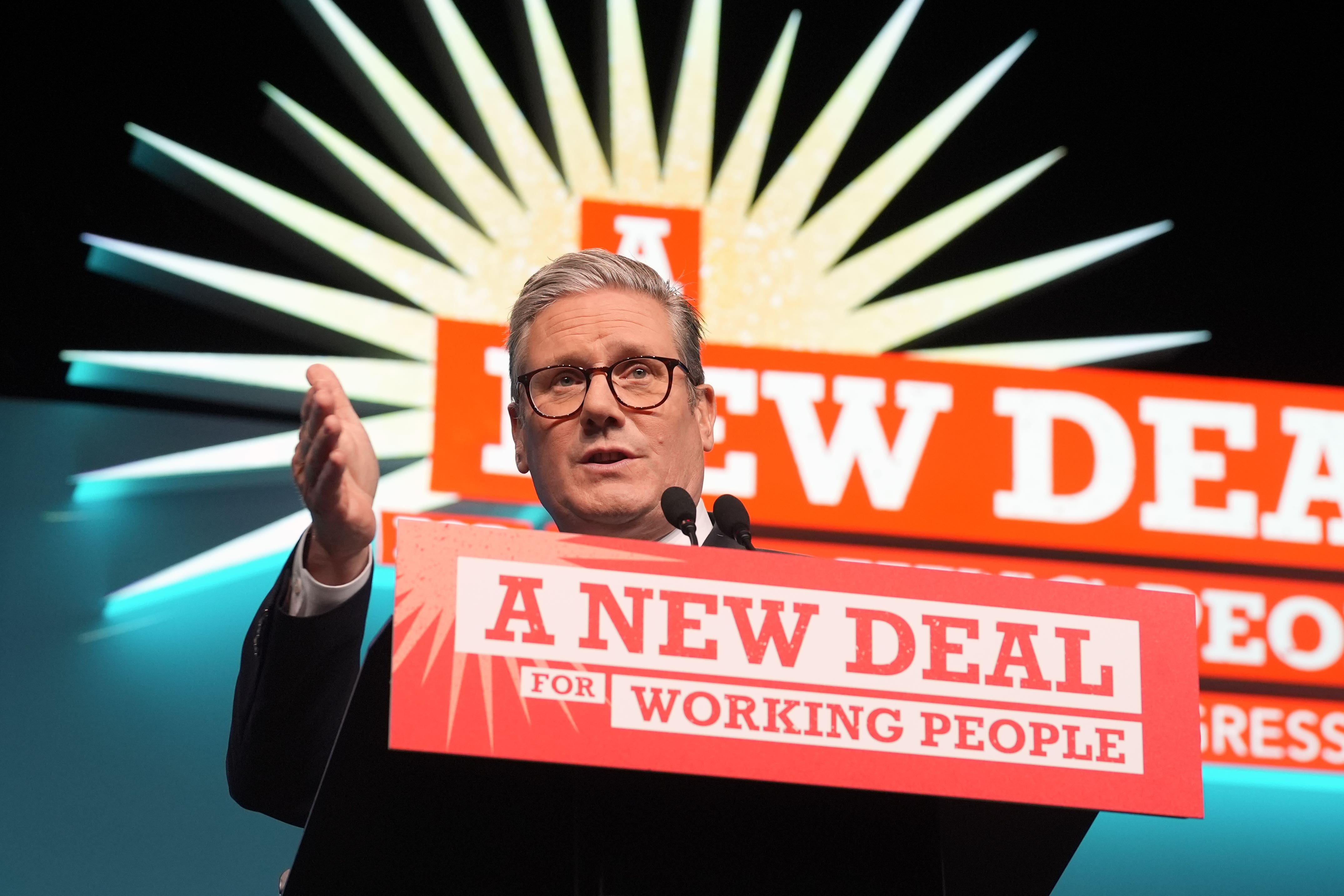Sir Keir Starmer is not for turning
Editorial: As a single Labour MP dares to vote against the government’s withdrawal of winter fuel payments, this minor rebellion heralds the return of cohesive government, led by a determined prime minister who knows his own mind

In his speech to the 156th Trades Union Congress in Brighton, the prime minister offered the assembled delegates, to coin a phrase, gloom, gloom and more gloom.
Any remaining celebratory mood left over from the heady historic dawn of 5 July was thoroughly dampened by the hard truths and harder choices that Sir Keir Starmer presented to the people he still calls “comrades”. Given the circumstances, in particular the cut in eligibility for the winter fuel payment, the prime minister was fortunate to be given as polite a reception as he received.
Yet, having long since abandoned the more radical promises he made in his pitch for the leadership in 2020 – and, more recently discovered, the celebrated £22bn “black hole” in the public finances – his message came as no surprise and was given with due solemnity: “I owe working people the respect of economic stability. A responsibility – not to be reckless with their money. That is the mandate we have won. And we will deliver this by fixing the foundations of our country.”
The prime minister is entirely right. Both the relatively tame opposition he encountered in Brighton and the minor rebellion in the Commons – the Conservative motion to block the winter fuel payment cut was defeated despite 53 Labour abstentions and Jon Trickett voting with the opposition – suggests that that message is getting through and resonating across the Labour movement.
That is a measure of the change that Sir Keir has wrought on his party and now wishes to bring to the country as whole. He is doing so with a remarkable determination, itself a striking contrast with the chaos, vacillations and U-turns of recent years.
Unlike the Conservatives, addicted to plotting and in a state of near-permanent civil war, Sir Keir does lead a united party – and as the vote in parliament on the winter fuel payment demonstrated, a disciplined one. It is a party made up of a gathering of people from the New Labour era, united around a strong and central chief of staff: Sue Gray. She offers discipline, competence, coherence and deliverability to the Starmer government.
The Tory front bench had obviously seized on the device of an early day motion, debate and vote to foment division on the Labour benches and to show how little control Sir Keir has on his back benches. Instead, as with the vote on child benefits before the recess, events proved quite the opposite.
The Tories were unabashed by the fact that they fought the 2017 general election on a promise to means-test winter fuel payments for old people, an idea more recently raised again by leadership contender Kemi Badenoch; but the chances are that, had they won the last general election, they would be doing precisely that now.
The gentleman is certainly not for turning – and there is a highly creditable pattern emerging.
When Sir Keir decides on what is the right thing to do, he follows his instincts – and follows it through. He did so on another highly controversial policy announced earlier and which has now been implemented: the early release of prisoners, to prevent an even worse crisis in the prison system and policing.
If policies on child benefit, public pay awards and the winter fuel allowance were political choices, the position in the prisons forced the government’s hand. Short of allowing serious offenders, including rioters, to go free, some early releases were essential – and, indeed, had been scheduled by the Sunak administration. The government was right to ensure that the rioters were brought to justice swiftly, which deterred further unrest and probably saved lives.
Or, to take another example, the prime minister was also willing to take the abuse levelled at him by people who should know better when he followed the law and restricted the export of certain arms to Israel, where there was a risk they could be used unlawfully in the occupied Palestinian territories.
In all these varied cases, policy was formulated in the proper logical way, subjected to extensive public and parliamentary scrutiny, and carried against sometimes fierce opposition.
That is not to say that every argument has been won, nor that these are the best possible policies available in the circumstances. It is fair to say that Sir Keir has not persuaded enough people as to why the relatively small sums involved in the cut to the winter fuel subsidy meant it had to be imposed with few mitigations, supposedly to prevent a run on the pound. Similarly, many are frustrated that there are so many foreign prisoners, perhaps 10,000, in British jails awaiting deportation, and why that cannot be expedited in the present emergency.
What is clear, though, is that Britain has, after a gap of too many years, seen the return of cohesive government – of the “strong and stable” kind once traditionally associated with the Conservatives. That is, indeed, “change”.
Join our commenting forum
Join thought-provoking conversations, follow other Independent readers and see their replies
Comments
Bookmark popover
Removed from bookmarks